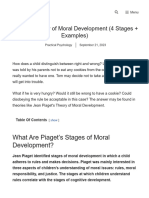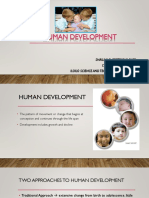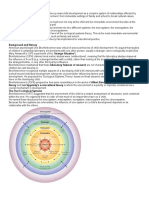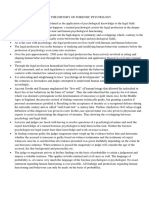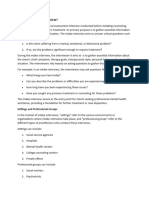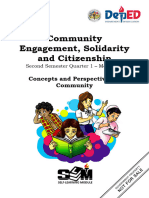0% found this document useful (0 votes)
164 views20 pagesHuman Development and Social Psychology
The document discusses theories of human development including psychoanalytic theory proposed by Freud and Erikson, cognitive developmental theory by Piaget, and social learning theories by Bandura and Skinner. It also outlines Bronfenbrenner's bioecological systems theory which proposes that development is influenced by interacting microsystems, mesosystems, exosystems and macrosystems within an individual's environment. Major human development stages from prenatal to late adulthood are also outlined.
Uploaded by
chirchirellyCopyright
© © All Rights Reserved
We take content rights seriously. If you suspect this is your content, claim it here.
Available Formats
Download as DOCX, PDF, TXT or read online on Scribd
0% found this document useful (0 votes)
164 views20 pagesHuman Development and Social Psychology
The document discusses theories of human development including psychoanalytic theory proposed by Freud and Erikson, cognitive developmental theory by Piaget, and social learning theories by Bandura and Skinner. It also outlines Bronfenbrenner's bioecological systems theory which proposes that development is influenced by interacting microsystems, mesosystems, exosystems and macrosystems within an individual's environment. Major human development stages from prenatal to late adulthood are also outlined.
Uploaded by
chirchirellyCopyright
© © All Rights Reserved
We take content rights seriously. If you suspect this is your content, claim it here.
Available Formats
Download as DOCX, PDF, TXT or read online on Scribd
/ 20

